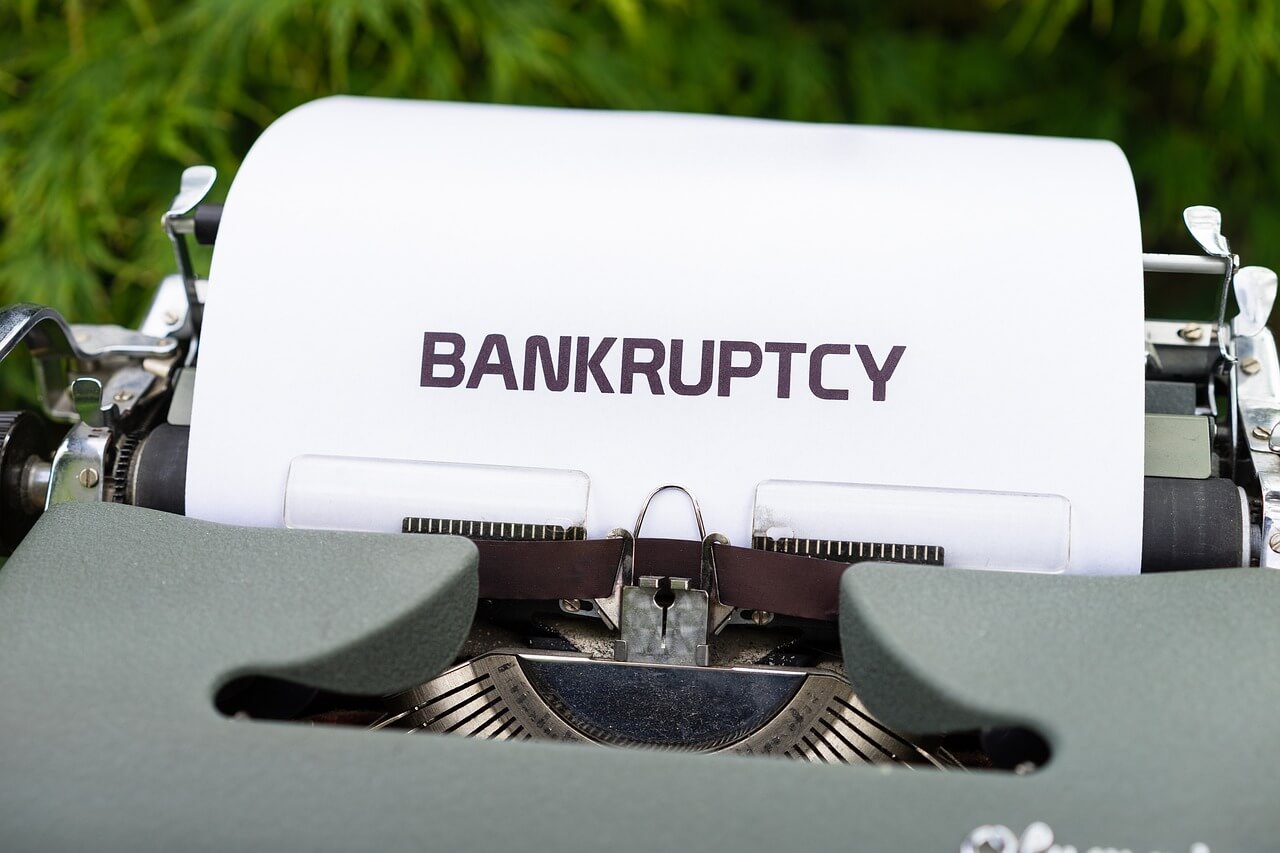When you’re struggling with mounting credit card debt, it can be overwhelming to consider your options for relief. Two of the most commonly considered options are defaulting on your credit card payments or declaring bankruptcy. However, both options can have long-lasting effects on your credit score and financial future.
If you are struggling with overwhelming debt, filing for bankruptcy and defaulting on credit card payments may not be the only options available to you. Debt settlement is another option that can help you pay off your debts and potentially avoid bankruptcy. Debt settlement services can help you negotiate with your creditors to settle your debts for less than the full amount owed.
What is Chapter 7 Bankruptcy?
Chapter 7 bankruptcy is also known as liquidation bankruptcy. With this type of bankruptcy, your assets are sold to pay off your debts. In exchange for giving up your assets, you may be able to discharge most, if not all, of your unsecured debts, such as credit card debt and medical bills.
What Are the Requirements for Chapter 7 Bankruptcy?
To qualify for Chapter 7 bankruptcy, you must pass a means test, which compares your income to the median income in your state. If your income is below the median, you may be eligible for Chapter 7. If your income is above the median, you may still be able to file for Chapter 7, but you will need to demonstrate that you do not have enough disposable income to pay off your debts.
Additionally, to file for Chapter 7 bankruptcy, you must complete a credit counseling course within 180 days before filing. You must also attend a meeting of creditors, where you will be asked questions about your financial situation.
What Are the Requirements for Chapter 13 Bankruptcy?
Chapter 13 bankruptcy is also known as a reorganization bankruptcy. With this type of bankruptcy, you repay your debts over a period of three to five years. Unlike Chapter 7, you are allowed to keep your assets in Chapter 13 bankruptcy. To file for Chapter 13 bankruptcy, you must have a regular income and your unsecured debts must be below a certain threshold.
Additionally, your secured debts, such as a mortgage or car loan, cannot exceed a certain amount. Like Chapter 7 bankruptcy, you must complete a credit counseling course and attend a meeting of creditors. You must also submit a repayment plan, which will be reviewed by the court and your creditors.
Exceptions to Discharging Credit Card Debt
It’s important to note that not all credit card debt can be discharged in bankruptcy. For example, if you made luxury purchases or cash advances within 90 days of filing for bankruptcy, those debts may not be discharged. Additionally, if you have engaged in fraudulent or illegal activity, such as using someone else’s credit card without their permission, those debts may not be discharged.

How Does Bankruptcy Affect Your Credit?
Bankruptcy can have a significant impact on your credit score and financial future. When you file for bankruptcy, it stays on your credit report for up to 10 years, making it difficult to obtain credit or loans in the future. Your credit score will likely drop significantly, and you may find it challenging to get approved for new credit accounts or loans.
Additionally, you may have to pay higher interest rates or make larger down payments to obtain credit. Bankruptcy can also impact your ability to rent an apartment or obtain certain types of employment, as employers and landlords may check your credit history.
Options for Paying Off Debt Without Filing for Bankruptcy
If you are struggling with debt, filing for bankruptcy may seem like the only option to get relief. However, bankruptcy can have long-lasting effects on your credit score and financial future. Fortunately, there are alternative options for paying off debt without filing for bankruptcy, such as debt settlement.
What Is Debt Settlement?
Debt settlement is the process of negotiating with your creditors to settle your debts for less than the full amount owed. This can be a viable option if you are behind on payments and unable to make the minimum payments required by your creditors. When you enter a debt settlement program, you will typically stop making payments to your creditors and instead make payments to a debt settlement company.
The payments will go into an escrow account. Once enough savings have accumulated in this account the company will then negotiate with your creditors on your behalf to potentially settle your debts for less than the amount owed. Once a settlement agreement is reached, you will make a lump-sum payment from the escrow account to the creditor in exchange for them forgiving the remaining debt.
Why Debt Settlement Is A Better Option Than Filing Bankruptcy For Credit Card?
Debt is a common issue that many individuals face, and credit card debt is one of the most prevalent forms of debt. When individuals accumulate high levels of credit card debt, they may struggle to make payments and end up considering bankruptcy as a potential financial solution. However, there is a better option than filing for bankruptcy, that is debt settlement. Filing for bankruptcy can be a daunting and stressful process, where you may feel like you are giving up control of your financial situation.
With debt settlement, however, you have more control over the process. You work with a debt settlement company to negotiate with your creditors and come up with a plan to pay off your debts. This can provide a greater sense of control and empowerment in the process. Filing for bankruptcy can be an expensive process, with fees for attorneys and court costs.
Debt settlement, however, can be a more cost-effective solution. While there may be fees associated with working with a debt settlement company, they are often less than the costs associated with bankruptcy.
Debt settlement can help you feel more in control of your debt and provide a path toward financial stability.
Benefits of Debt Settlement
Debt settlement can offer several benefits over bankruptcy and defaulting on credit cards. Firstly, it can help you avoid the negative impact that bankruptcy can have on your credit score. While debt settlement can still have a negative impact on your credit score, it is often less severe and can be repaired more quickly than bankruptcy.
Additionally, debt settlement can be less expensive than bankruptcy. While there are fees associated with debt settlement programs, they are often lower than the fees associated with filing for bankruptcy. Finally, debt settlement can provide a faster resolution to your debt problems. While bankruptcy can take several months to complete, debt settlement can often be completed in a matter of weeks or months.
Defaulting on your credit card payments is not a recommended solution, as the problem will still be there and you will fall further into debt. Debt settlement gives you the opportunity to reduce and potentially eliminate your debts and puts you on a path toward financial stability.
Conclusion:
When it comes to credit card debt, debt settlement is a better option than filing for bankruptcy. It offers more control over the situation, does not have as severe of consequences, can be more cost-effective, can be completed more quickly, and can help preserve your credit score. If you are struggling with credit card debt, consider debt settlement as a potential solution. By enlisting the help of a reputable debt settlement firm, you can potentially save yourself from having bankruptcy on your credit report and be on the path to becoming debt free.
 Infographic Portal New Infographics Resource Portal
Infographic Portal New Infographics Resource Portal
